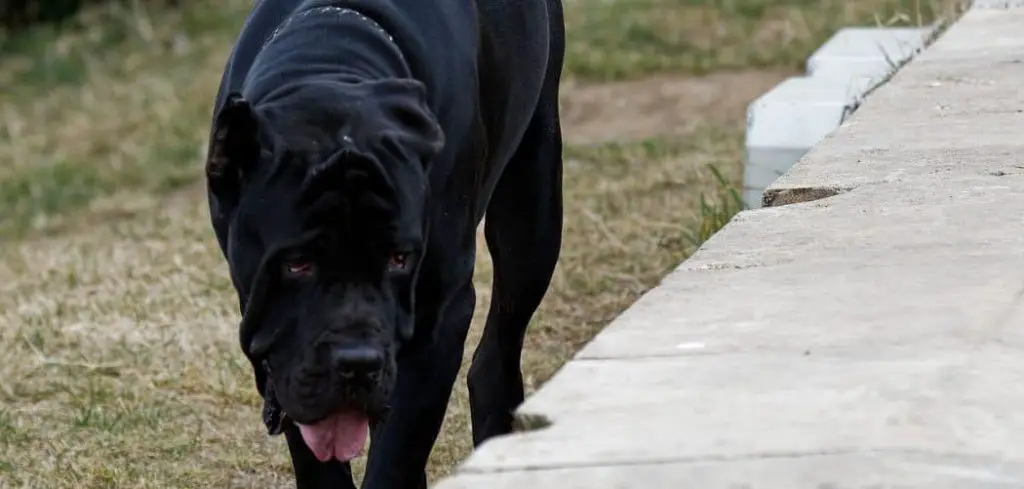If your dog is drinking excessively and also licking more than usual—whether it’s their paws, lips, you, or random objects—it’s more than just quirky behavior. These two symptoms often overlap in conditions involving nausea, stress, or underlying medical problems.
We outline the common causes of dog drinking a lot of water and licking, what you can do at home, and when to seek veterinary help.
Dog Drinking a Lot of Water and Licking — Why It Happens
Excessive drinking combined with licking often points to nausea, gastrointestinal discomfort, behavioral anxiety, or medical conditions like Cushing’s or kidney disease.
Some dogs lick as a self-soothing behavior, while others do it in response to internal discomfort or metabolic imbalance.

Common Causes of Dog Drinking a Lot of Water and Licking
Nausea or Gastrointestinal Upset
Licking is a common response to nausea in dogs. You might see them licking their lips, the floor, or even gulping excessively.
If a dog is also drinking more than usual, it may be trying to soothe a queasy stomach or compensate for mild dehydration caused by vomiting or diarrhea.
Look for other signs like drooling, decreased appetite, pacing, or grass eating. Mild GI upset might pass, but chronic symptoms need vet attention.
Anxiety or Compulsive Behaviors
Stress or anxiety can lead to repetitive licking (including self-licking or licking people/objects) as a calming ritual.
Some dogs also drink excessively when stressed, either as a coping behavior or due to disrupted routines.
Changes in environment, separation anxiety, or boredom can trigger both symptoms. Anxiety often worsens without intervention.
Kidney Disease
Kidney problems often result in increased thirst due to reduced filtering efficiency. Dogs may also lick unusual surfaces—like concrete or walls—possibly to cope with nausea caused by toxin buildup.
Other signs include weight loss, bad breath, vomiting, and decreased appetite. Kidney disease is serious but manageable if caught early.
Cushing’s Disease (Hyperadrenocorticism)
This hormonal disorder causes increased thirst, hunger, and sometimes compulsive behaviors like licking or pacing.
Affected dogs often develop a pot-bellied appearance, thinning fur, and panting. The overlap of excessive licking and drinking is common.
Diagnosis requires blood and hormone tests. With medication, symptoms can usually be controlled.
Dental Issues or Oral Discomfort
Dogs with dental pain or oral irritation may lick excessively, particularly their lips or nose.
They may also drink more in an effort to soothe mouth discomfort, especially if eating becomes painful.
Tartar buildup, gingivitis, or mouth ulcers are common culprits. A dental check-up is recommended if licking and drooling are present.
Read more: Dog Drinking a Lot of Water and Panting (Could it be a hormonal issue?)
Foreign Body Ingestion or Gastric Obstruction
If your dog swallowed something they shouldn’t have, they may develop digestive issues that cause nausea, licking, and increased thirst.
This is often accompanied by restlessness, vomiting, and refusal to eat.
A foreign body can quickly become an emergency. If symptoms persist or worsen, seek urgent care.
What to Do If Your Dog Is Drinking and Licking Excessively
Monitor when the licking happens—before meals, after drinking, during rest, or after excitement? Patterns can reveal if it’s behavioral or medical.
Ensure your dog has clean water at all times and isn’t gulping it out of stress or because of illness.
Check for other symptoms: drooling, vomiting, appetite changes, oral issues, or pacing can help guide diagnosis.
Avoid punishment—it can worsen anxiety. Instead, use distraction techniques and consult your vet if symptoms persist beyond 24–48 hours.
Record a video of the behavior if it’s intermittent—this can help your vet identify the trigger.
When to Call or Visit Your Vet
Contact your vet if your dog:
Is licking compulsively or nonstop
Drinks excessively for more than a day or two
Shows signs of nausea (drooling, vomiting, eating grass)
Has bad breath, trouble eating, or visible dental problems
Becomes restless, lethargic, or shows sudden behavior changes
Testing may include bloodwork, urinalysis, abdominal imaging, or dental evaluation depending on symptoms.
Read more: Dog Drooling and Licking Excessively (Here’s when to worry)
Key Takeaway
A dog that drinks a lot and licks excessively may be dealing with nausea, stress, or a medical condition like kidney or hormone dysfunction.
Watch for patterns, check for other signs, and don’t wait too long to involve your vet—early action helps uncover and resolve the root cause effectively.
